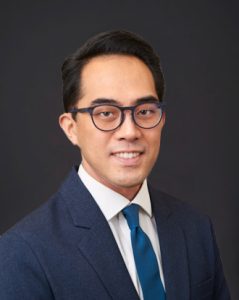Happy Heart Health Month from Dr. Alexander Park
 Happy Heart Health Month! February is an important time to reflect on the leading cause of death for Americans: heart disease.
Happy Heart Health Month! February is an important time to reflect on the leading cause of death for Americans: heart disease.
In 1964, President Lyndon Johnson issued the first proclamation declaring February to be American Heart Health Month. The President himself had suffered a major heart attack in the 1950s and went on to have two more in the early 1970s, the last of which was fatal. We’ve come an incredibly long way since the time President Johnson suffered his first heart attack. In that era, nearly half of heart attacks were fatal. Patients were mainly offered morphine and bed rest. It was not until 1963 that the American Heart Association (AHA) endorsed CPR, and not until the late 1960s that DC current defibrillation was common. The US did not even have a coronary care unit until 1962 when the first CCU opened in Kansas.
Today, we are lucky enough to have the advancements of modern medicine and less than 20% of heart attacks are fatal. But many more can still be saved. Did you know that each year in the US there are 365,000 cardiac arrests happening outside of hospitals? Less than 10% of these cases survive. The AHA estimates we could save more than half of that 365,000 if more bystanders delivered CPR. The prevalence of CPR training in the community is 18% and it’s started less than 40% of the time, with AEDs (automated external defibrillator) used in less than 6% of cases.
February’s Heart Health Month is a great time to take a moment and considering taking or updating your CPR training. It’s a fun activity to do as a family or with a group of friends and many local Red Cross facilities offer classes at low cost. Local fire stations are also excellent resources to check for community-based BLS (basic life support) training. Also consider asking at your workplace or your school or your church about AEDs. It’s a good idea to know where the AEDs are in any consistent gathering place you frequent—who manages those devices in your facilities and who checks to make sure the batteries are charged, and the device is up to date? The wrong time to find out your AED’s gone flat is when you need it in an emergency! It takes all of us being prepared as a community to save a life when one of our own goes down in our midst.
Finally, I encourage all of us to model healthy lifestyles—for ourselves and our loved ones. The same choices and lifestyle behaviors we’d want our loved ones to follow should start with that being the paradigm in our own lives. We can’t take care of others until we take care of ourselves! Did you know the AHA has a list called “The Simple Seven” which supports preventive heart health? Preventing heart attacks is much more powerful than our ability to deliver CPR when a heart attack starts. In general, the US spends much more healthcare dollars on treatment than prevention and turning that tide starts with each of us.
The AHA’s “Simple Seven” are exactly as they sound—they are simple. It involves maintaining a healthy weight, healthy diet, avoiding smoking, having adequate physical activity levels, a normal blood pressure, total cholesterol under 200, and fasting glucose under 100. Do you know how many Americans meet the AHA’s “Simple Seven” steps? Well, a famous study in the journal “Circulation” surveyed nearly 18,000 representative Americans between the ages of 45 to 98 and found that not 10%, not 5%, not even 2% met the “Simple Seven.” It was two people, in the entire study.
Everyone can take small but meaningful steps to incorporate more of the “Simple Seven” into their lifestyle. We can all help each other! Nudge your cubicle neighbor at work to go for a walk with you during lunch hour or break time. Try to make healthy choices for your snacks and lunches that involve fresh fruits and vegetables and minimal processed foods. Take time to go get a checkup with your doctor learn your stats—BMI, glucose, cholesterol, blood pressure.
We’ve come a long way since the time President Johnson started Heart Health Month. Let’s all continue to push ourselves and our communities to continue that journey together!


